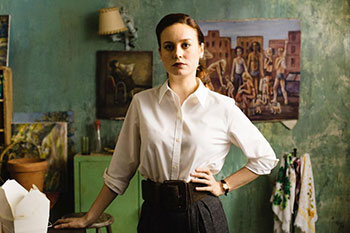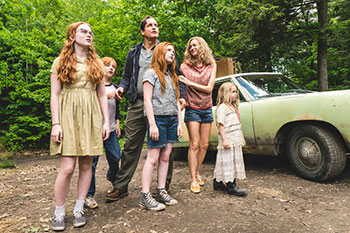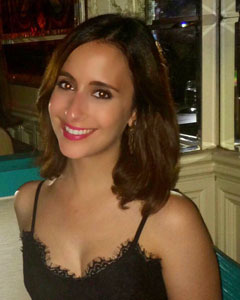Movie Review: The Glass Castle
A Star-Studded Adaptation That Doesn’t Live Up to the Book

To meet Rex Walls via Jeannette Walls’ 2005 memoir The Glass Castle is to be swept away by a powerhouse of a figure: a man who is both brilliant and destructive; warm and erratic. He’s a vibrant free spirit who makes every living moment an adventure, but also a damaged soul facing too many demons to fend off. He’s someone you love and hate, but never someone you love to hate.
To meet Rex Walls via Destin Daniel Cretton’s film adaptation of the same name is to meet a shadow of the real man. He’s a picture without color, a shallow representation of a person who was once bursting with layers.
That detail alone cements the fate of the film The Glass Castle, a missed opportunity in every sense of the phrase.
Based on Jeannette Walls’ bestselling memoir recounting her highly dysfunctional and uniquely nonconformist family, the film tracks Jeannette’s formative years, starting at the age of three. The Walls family consists of four children: Lori, Jeannette, Brian and Maureen, and their parents, Rex (Woody Harrelson) and Rose Mary (Naomi Watts). Rex is a charismatic alcoholic who is always talking about how they’re going to strike gold with his latest invention; Rose Mary is an eccentric artist who chooses to spend her days painting instead of parenting.
 The Walls children grew up in extreme poverty. Constantly on the run from bill collectors, the family would pick up and leave at the drop of a hat, living in places like the Arizona desert or the run-down Welch, West Virginia, where they took up residence in a dilapidated house without running water or electricity.
The Walls children grew up in extreme poverty. Constantly on the run from bill collectors, the family would pick up and leave at the drop of a hat, living in places like the Arizona desert or the run-down Welch, West Virginia, where they took up residence in a dilapidated house without running water or electricity.
In many ways, Walls’ memoir is a real-life horror story colored by youthful wonder and idealization. Her book manages to be strikingly beautiful, even when describing atrocities most could never imagine. And that’s exactly what’s lacking in the film version of The Glass Castle. Young Jeannette may be the protagonist, but we’re never given the sense that we’re truly seeing things through her eyes.
 Most of the film’s faults lie in the undercooked screenplay, which never manages to capture so much of the fire that made Rose Mary and Rex strangely inspiring (albeit highly unfit) parents. Harrelson and Watts are standouts, really embodying the quirks of their characters. But with a script that is content just coasting along, their characters fail to make the lasting impact the story demands.
Most of the film’s faults lie in the undercooked screenplay, which never manages to capture so much of the fire that made Rose Mary and Rex strangely inspiring (albeit highly unfit) parents. Harrelson and Watts are standouts, really embodying the quirks of their characters. But with a script that is content just coasting along, their characters fail to make the lasting impact the story demands.
The film opens with Jeannette as an adult, now a successful gossip columnist. Adult Jeannette is played by Oscar-winning actress Brie Larson, who does her best with the limited material she has to work with. There’s a distinct disconnect between the past and the present, due in no small part to the misguided decision to frequently intercut between the two throughout the film. The present only serves one purpose: to drive home the story’s themes of redemption and reconciliation, as well as the overarching idea of the beauty dreams hold — even when unfulfilled. You get the sense that Cretton knew what themes he needed to jam into the screenplay, but failed to grasp why they were even significant in the first place.
Towards the end, Rex tells Jeannette, “You ain’t like me” in a moment of regretful realization. When Larson’s Jeannette tearfully responds, “I am like you, and I’m glad,” it’s the final nail in this Hallmark coffin. It becomes clear that The Glass Castle is spelling out in no uncertain terms how the audience should feel about Rex and Rose Mary, instead of letting us draw our own complicated conclusions. It’s a telling sign of a filmmaker with no guts or gumption. And that’s something the real Rex Walls would never stand for.
Rating: D+
The Glass Castle is now playing. For showtimes in Miami, click here: Movie Times.

Lauren Cohen was born and raised in Miami Beach and graduated from the University of Miami with a bachelor’s degree in Motion Pictures. She has been writing about film since 2009, with her movie reviews and features appearing regularly in Examiner.com and Miami Beach News, among others. She’s interviewed some of the most recognizable faces in the film industry, including Daniel Craig, Emma Stone, Channing Tatum, Joseph Gordon-Levitt and Javier Bardem. An avid supporter of the arts, Lauren also works with the Miami Film Festival to promote the best of world cinema to the Miami community.


